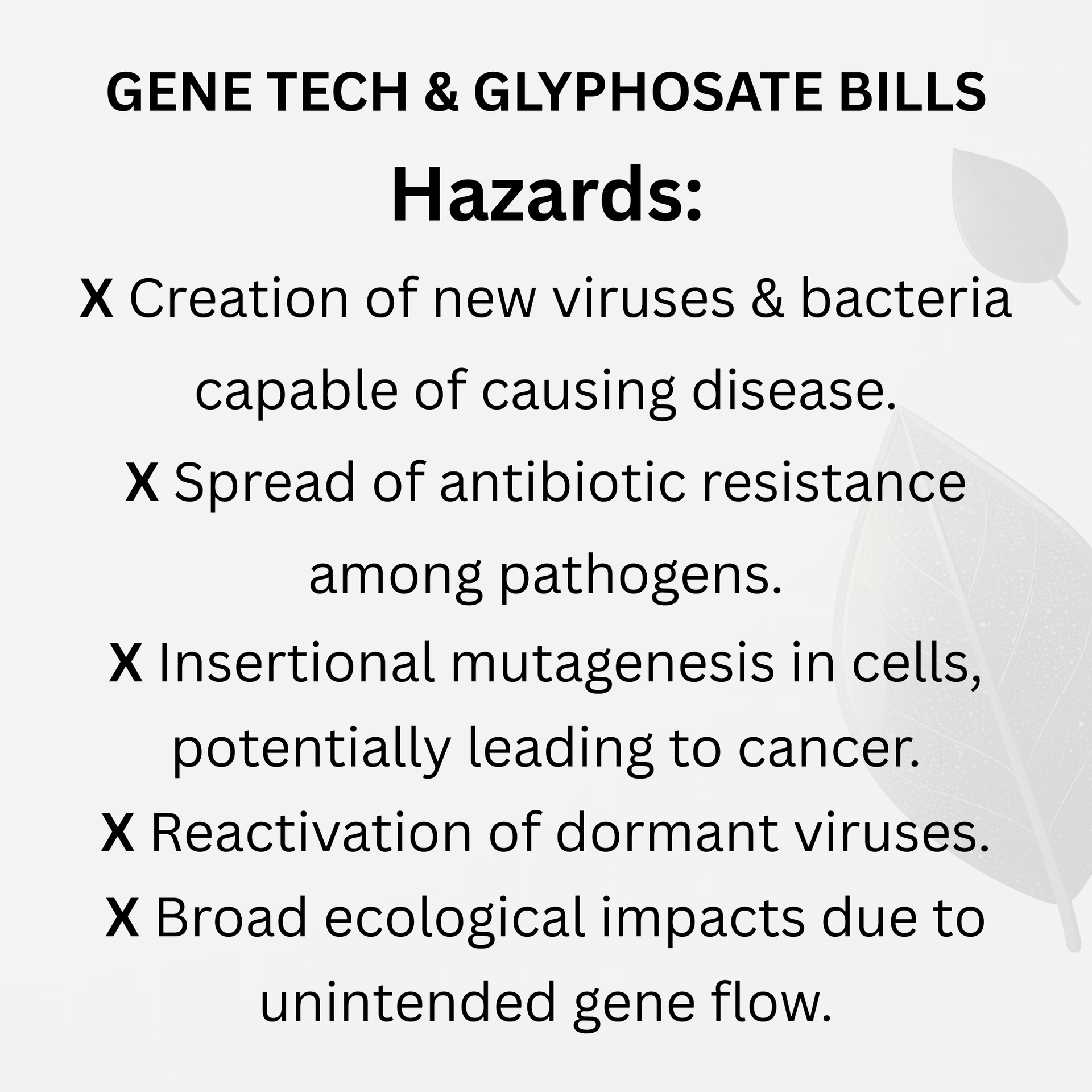Two Harmful Food Bills NZ Must Reject
Chronic Diseases Linked to Pesticides and Glyphosate
Pesticides are widely used in modern agriculture and landscaping, yet their impacts on human health are becoming increasingly difficult to ignore. Pesticides are frequently applied without precision, which leads to a number of adverse effects on human health, from acute intoxication to chronic diseases that include various types of cancer (brain cancer, breast cancer, prostate cancer, bladder cancer, and colon cancer), Alzheimer’s disease (AD), Parkinson’s disease, neurotoxicity, infertility, leukemia, diabetes, and hormone disruption.
Reference:
https://www.sciencedirect.com/science/article/pii/S2405844024051594
__________________________________________________
Parkinson’s Disease and Pesticides
A recent study published in the Journal of the American Medical Association examined the relationship between pesticide exposure and Parkinson’s disease (PD). Researchers found that:
“Living within 1 mile of a golf course was associated with 126% increased odds of developing PD compared with individuals living more than 6 miles away from a golf course.”
Meaning: These findings suggest that pesticides applied to golf courses may play a role in the incidence of Parkinson’s disease for nearby residents.
Reference:
__________________________________________________
Glyphosate and Chronic Health Effects
Glyphosate, the world’s most widely used herbicide, has been linked in independent studies to multiple chronic health risks, including cancer, neurological damage, reproductive harm, and endocrine disruption. Research shows glyphosate can accumulate in the brain, triggering neuroinflammation, Alzheimer’s-like pathology, anxiety-like behavior, and genetic disruptions in neurons.
Pesticide exposure may act as an endocrine disruptor, interfering with hormone systems and contributing to developmental issues. Some studies have also linked exposure to autism-like behaviors in animal models, highlighting potential long-term risks to children's neurological health.
Chronic exposure to glyphosate and other pesticides is associated with an increased risk of cancers, including leukemia, bladder, breast, prostate, colon, and brain cancers.
__________________________________________________
Other Chronic Health Effects Linked to Pesticides
Independent studies also highlight associations between pesticides (including glyphosate) and a wide range of chronic diseases:
- Neurological disorders: Parkinson’s, Alzheimer’s, neurotoxicity
- Reproductive harm: infertility, birth defects
- Cancers: leukemia, non-Hodgkin lymphoma, bladder, prostate, breast, colon, and brain cancers
- Metabolic effects: diabetes, endocrine disruption
Reference (summary of risks):
https://www.sciencedirect.com/science/article/pii/S2405844024051594
__________________________________________________
Why This Matters
It affects our communities, food, and future generations. Communities near orchards, farms, and even golf courses are exposed through air, soil, and water. Chronic diseases linked to pesticides don’t appear overnight; they emerge after years of low-level exposure. So why increase glyphosate levels - it would be cruel.
If New Zealand raises glyphosate limits and weakens genetic safety laws, these risks — including cancer, neurological, and hormonal impacts — will increase, not decrease.
__________________________________________________
Call to Action
- Support independent research into pesticide health impacts.
- Oppose laws that increase glyphosate exposure and weaken genetic safeguards.
- Choose food produced with no pesticides.
Spread awareness: pesticides are not just an environmental issue — they are a public health issue.
References
https://www.sciencedirect.com/science/article/pii/S2405844024051594
“We observed early onset and early mortality for a number of rare malignant cancers, including leukemia, liver, ovary and nervous system tumors. Notably, approximately half of the deaths from leukemia seen in the glyphosate and GBHs treatment groups occurred at less than one year of age, comparable to less than 35–40 years of age in humans.”
— Dr. Daniele Mandrioli, Principal Investigator, Global Glyphosate Study
Sign & Share the Petition: change.org/noharmtofood
New Zealand Context: Why Two Food Bills Matter
Right now, New Zealand faces two new proposed laws that would directly affect pesticide use and food safety:
- Raising glyphosate residue limits in food by up to 100 times – exposing families to far higher levels of chemicals linked to cancer and other chronic diseases.
- Deregulating gene editing – allowing crops engineered for higher chemical tolerance, which could increase pesticide usage.
These changes would push New Zealand toward a more chemical-intensive food system, with serious risks to soil health, biodiversity, and public health.
Research also shows that pesticide exposure acts as an endocrine disruptor,
interfering with hormone systems and contributing to developmental issues.
Studies have further linked glyphosate and other pesticides to autism-like behaviors in animal models, raising concerns about long-term impacts on children’s neurological health and development.
Pesticides can be ingested, inhaled, or absorbed via the skin.

“Glyphosate-based herbicides have been shown to disrupt endocrine function at levels well below regulatory safety limits. Such disruption may contribute to developmental, reproductive, and metabolic disorders.”
— Dr. Michael Antoniou, King’s College London, co-author of independent glyphosate toxicity reviews







